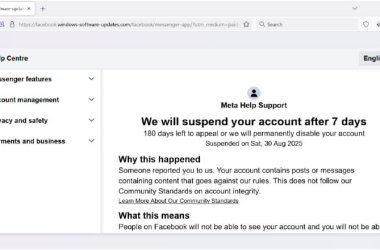The arrest in India of two girls after they made a Facebook post criticising a shutdown of the city after the death of a local political leader has again raised questions about whether the country’s cyberlaws need to be amended to prevent misuse.
Shaheen Dhada, who wrote the post, and her friend Renu Srinivasan, who hit “like” when she saw the post on Facebook, were arrested on Sunday in Palghar near Mumbai by state police under Section 66A of the country’s Information Technology Act, and section 505 (2) of the Indian Penal Code, according to local newspaper reports.
The two girls were later released on bail.
Section 505 (2) of the IPC deals with spreading rumours or alarming news that can promote enmity, hatred, and ill-will between religious, racial, and linguistic communities and castes. But Section 66A of the IT Act is seen by analysts as more likely to be misused by law enforcement agencies because it leaves a number of terms undefined.
Rushed through by the government soon after terrorist attacks in Mumbai in 2008, Section 66A of the IT Act is deliberately vague and can lead to a variety of interpretations, said Pavan Duggal, a cyberlaw expert who practices before India’s Supreme Court.
Section 66A makes it punishable by a fine and imprisonment of up to three years if a person uses a “computer resource or a communication device” to transmit a message that is “grossly offensive and has menacing character.” It also makes it an offence if a person transmits information known to be false to cause among other things hatred, enmity or ill-will.
There have not been any convictions so far under Section 66A, because its wording is vague, Duggal said. But the language that is used in the law is so “wide and broad” that it can be used by law enforcement agencies to target and harass people, he added.
Section 66A by its vagueness goes beyond the restrictions on free speech already in place under Article 19 of the Indian Constitution, Duggal said. The interpretation of an offence under the section is largely left to the discretion of the complainant and the law enforcement agencies, he added.
Embarrassed by protests against the arrests from civil rights groups and users of social networks, the federal government has said that the state police has misunderstood the purpose of the law.
Kapil Sibal, the country’s minister of communications, told a local TV channel that the government needs to “educate our enforcement authorities that this is not the way to use this particular Section.” Sibal said the government may need to add an explanation to Section 66A “which is something we need to debate to ensure that such things do not happen,” according to a transcript of the interview. He however did not seem to think the wording of the section was vague, stating that is the way laws are written, and it is up to courts to interpret.
From the point of view of governance, it may help the government to keep the language in the law vague, Duggal said.






